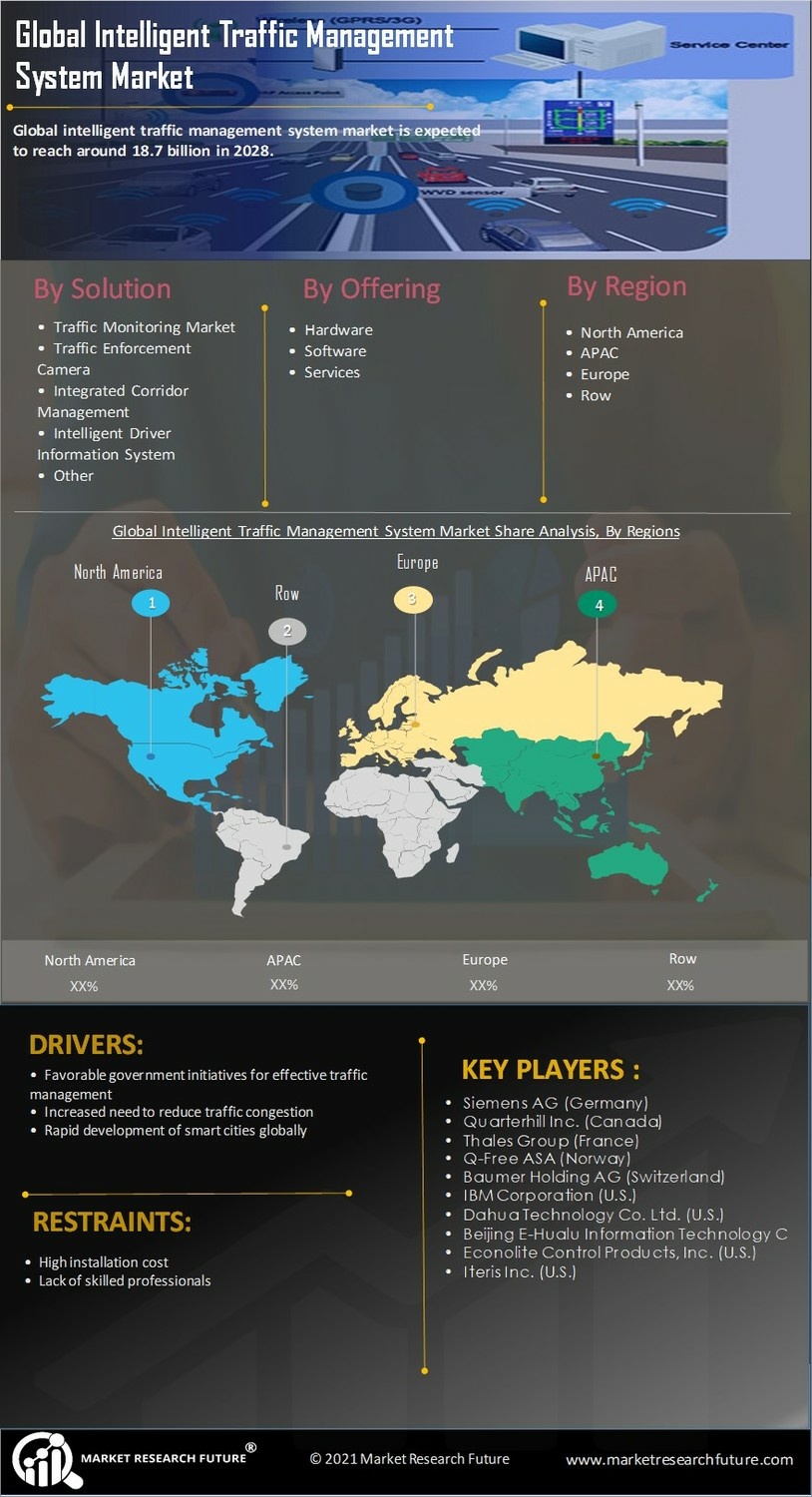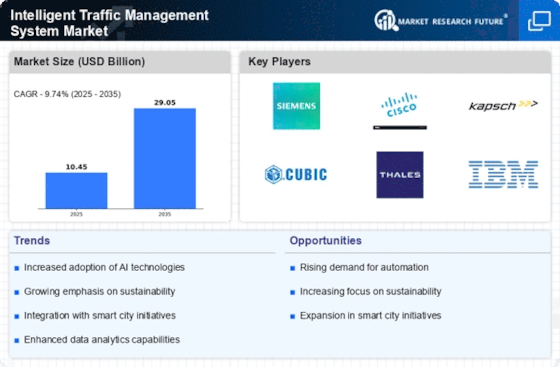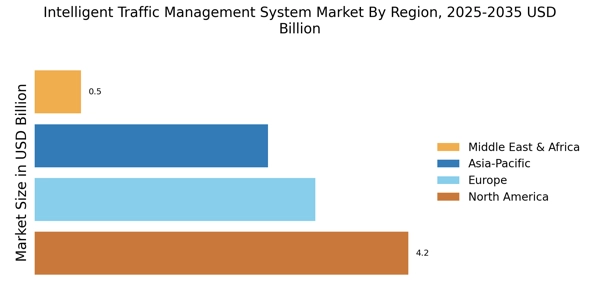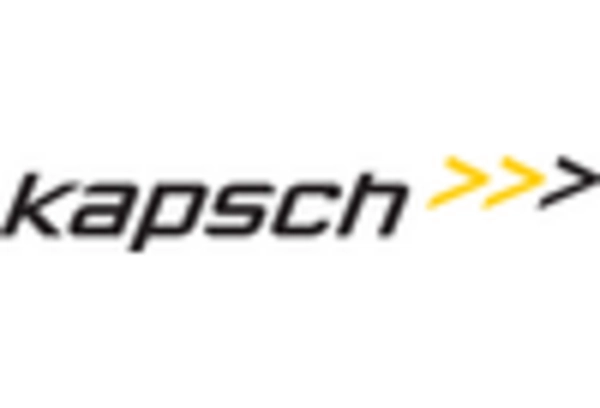Rising Urbanization
The rapid pace of urbanization is a pivotal driver for the Intelligent Traffic Management System Market. As more individuals migrate to urban areas, the demand for efficient traffic management solutions intensifies. Urban centers are experiencing increased vehicle density, leading to congestion and delays. According to recent data, urban areas are projected to house over 68% of the world's population by 2050, necessitating advanced traffic management systems. These systems are designed to optimize traffic flow, reduce travel times, and enhance safety. Consequently, municipalities are investing in intelligent traffic solutions to address these challenges, thereby propelling the growth of the Intelligent Traffic Management System Market.
Technological Advancements
Technological advancements are significantly influencing the Intelligent Traffic Management System Market. Innovations in sensor technology, data analytics, and communication systems are enhancing the capabilities of traffic management solutions. The integration of real-time data collection and analysis allows for more responsive traffic control measures. For example, the deployment of smart traffic signals and adaptive traffic control systems has been shown to reduce congestion by up to 30% in some metropolitan areas. Furthermore, the rise of connected vehicles and the Internet of Things (IoT) is expected to further revolutionize traffic management. These advancements are likely to create new opportunities within the Intelligent Traffic Management System Market, as stakeholders seek to leverage cutting-edge technologies.
Increased Road Safety Awareness
The heightened awareness of road safety is a significant driver for the Intelligent Traffic Management System Market. With rising traffic accidents and fatalities, there is an urgent need for systems that enhance safety on the roads. Intelligent traffic management solutions, such as real-time monitoring and incident detection, can significantly reduce the likelihood of accidents. Recent statistics reveal that intelligent traffic systems can decrease accident rates by approximately 25% in urban areas. As public concern for safety continues to grow, municipalities are increasingly investing in intelligent traffic solutions to protect citizens. This focus on safety is expected to further propel the Intelligent Traffic Management System Market.
Government Initiatives and Funding
Government initiatives play a crucial role in the expansion of the Intelligent Traffic Management System Market. Various governments are recognizing the need for modernized traffic management to improve public safety and reduce congestion. Funding programs and grants are being allocated to support the implementation of intelligent traffic systems. For instance, in recent years, several countries have launched initiatives aimed at integrating smart technologies into their transportation infrastructure. This financial backing not only facilitates the adoption of advanced traffic management solutions but also encourages collaboration between public and private sectors. As a result, the Intelligent Traffic Management System Market is likely to witness substantial growth driven by these governmental efforts.
Environmental Concerns and Sustainability
Environmental concerns are increasingly driving the demand for the Intelligent Traffic Management System Market. As awareness of climate change and air pollution grows, there is a pressing need for sustainable transportation solutions. Intelligent traffic management systems can contribute to reduced emissions by optimizing traffic flow and minimizing idle times. Studies indicate that implementing such systems can lead to a reduction in greenhouse gas emissions by up to 20% in urban settings. Additionally, cities are adopting smart traffic solutions to promote public transportation and non-motorized transport options, further supporting sustainability goals. This alignment with environmental objectives is likely to bolster the Intelligent Traffic Management System Market.

















